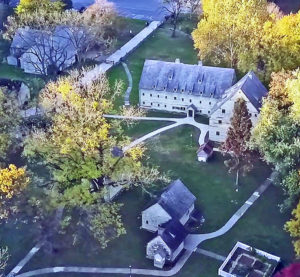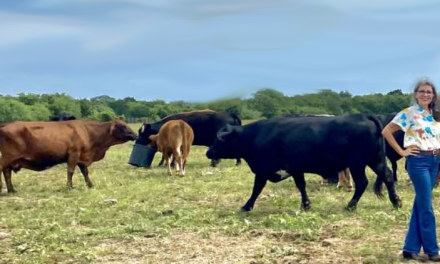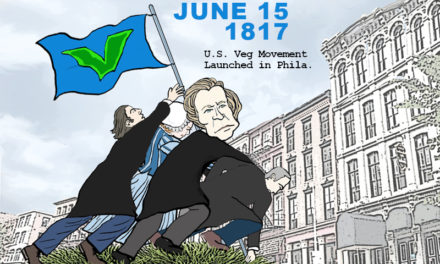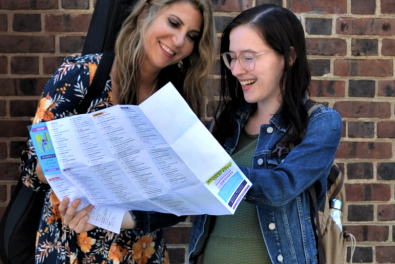
Bird’s-eye view of Ephrata, PA.
Centuries before the coinage of “vegan,” a group of hardcore animal-free eaters made beautiful music together in Southeastern PA. The choir of the Ephrata cloister in Lancaster County was led by Conrad Beissel, who explicitly forbade meat, milk, butter, cheese, eggs and honey from singers’ diets.
The reasons given were based on vocal production, and indeed the choir was one of North America’s first renowned musical attractions. But there was an ethical underpinning. In his instructions, Beissel described the above list as “food which we, with great injustice, take from the animals.” It’s a telling phrase, and an oddly modern use of “injustice” to refer to human-animal oppression in 1748.
There’s more. Members of the religious community generally walked rather than use horses, and the entire cloister was reportedly built using no animal labor. In fact, the Ephrata visitor’s center showcases a wall-sized painting of Ephrata men hitching themselves to the plow in order to clear the land.
So was Beissel himself vegan? We do know that he originally made his name as a baker back in Germany by “veganizing” a nonvegan bread recipe, so he may have at least been “vegan-curious” by that point.
Also, how much cross-pollination was there between Ephrata and Philadelphia, soon to become the birthplace and hub of vegetarian advocacy in North America? Research continues, but for now let’s note at least one documented vegan community largely ignored by history. There are likely quite a few more!
(This is a condensed blog-post version. To read the full story, become a member of American Vegan Society and receive American Vegan magazine.)




